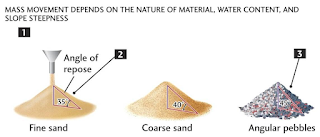Floating tablets - gastro-retentive drug delivery systems (GRDDS).
Floating tablets are one of the most popular and widely used approaches for gastro-retentive drug delivery systems (GRDDS). These tablets are designed to float on the surface of the gastric fluid and to release the drug in a controlled manner over a prolonged period of time. The floating tablet approach is based on the principle that by increasing the buoyancy of the tablet, it can be retained in the stomach for an extended period of time, thereby enhancing drug absorption and bioavailability.
The floating tablet approach involves the incorporation of low-density materials such as gas-generating agents or hydrocolloids into the tablet matrix. When the tablet comes in contact with the gastric fluid, the gas-generating agents or hydrocolloids swell, forming a gel layer around the tablet, which then helps to trap air bubbles and keep the tablet afloat on the gastric fluid. As the gas is released, the tablet gradually sinks and eventually disintegrates to release the drug.
Advantages of Floating Tablet Approach for GRDDS:
Improved Drug Absorption: The floating tablet approach can enhance drug absorption and bioavailability by retaining the tablet in the stomach for an extended period of time, allowing the drug to be released gradually and absorbed more effectively.
Better Therapeutic Efficacy: By maintaining a constant drug concentration in the bloodstream, the floating tablet approach can provide better therapeutic efficacy, leading to improved patient outcomes.
Reduced Dose Frequency: Floating tablets can deliver the drug in a sustained manner, reducing the frequency of dosing and enhancing patient compliance.
Reduced Side Effects: The controlled release of drugs using the floating tablet approach can reduce side effects, as the drug is released gradually, avoiding rapid peaks in plasma concentration.
Disadvantages of Floating Tablet Approach for GRDDS:
Variability in Gastric Emptying: The variability in gastric emptying time among individuals can affect the performance of floating tablets, leading to unpredictable drug release and absorption.
Large Tablet Size: The incorporation of low-density materials into the tablet matrix can increase the size of the tablet, making it difficult for some patients to swallow.
Dependence on Gastric pH: The performance of floating tablets is dependent on the pH of the gastric fluid, and changes in pH can affect drug release and absorption.
Applications and Uses of Floating Tablet Approach for GRDDS:
Treatment of Peptic Ulcers: Floating tablets can be used for the treatment of peptic ulcers, as they can enhance drug absorption and bioavailability, leading to improved therapeutic efficacy.
Treatment of Gastroesophageal Reflux Disease (GERD): Floating tablets can also be used for the treatment of GERD, as they can improve drug delivery to the lower esophageal sphincter, enhancing the therapeutic effect.
Treatment of Gastric Motility Disorders: The floating tablet approach can be used for the treatment of gastric motility disorders, such as gastroparesis, as it can enhance drug absorption and bioavailability, leading to improved therapeutic efficacy.
Importance of Floating Tablet Approach for GRDDS:
The floating tablet approach is an important and widely used approach for gastro-retentive drug delivery systems. It offers several advantages over other approaches, including improved drug absorption, better therapeutic efficacy, reduced dose frequency, and reduced side effects. The floating tablet approach has a wide range of applications and uses, including the treatment of peptic ulcers, GERD, and gastric motility disorders. Despite some limitations, the floating tablet approach is a promising approach for the development of novel gastro-retentive drug delivery systems.




Comments
Post a Comment